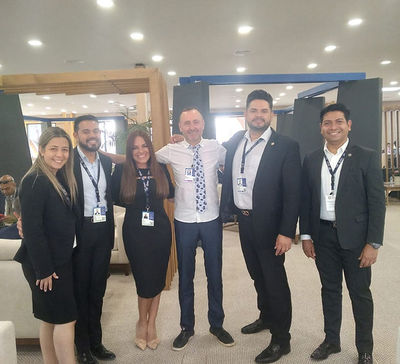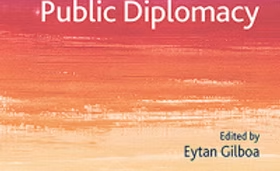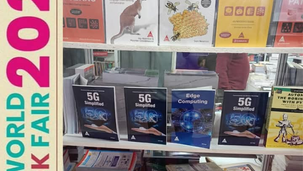
Breaking News:

Find Your Place at the Institute
We’re building a hub where ideas of civil society and academia turn into real-world impact throuh public diplomacy . Bring your expertise. Bring your passion. Build change that matters.
If you have proven expertise in the specific area of public diplomacy and a passion for change — you belong here.
-
DIASPORA DIPLOMACY
-
EDUCATION DIPLOMACY
-
ENVIRONMENTAL DIPLOMACY
-
HUMAN RIGHTS DIPLOMACY
-
MIGRATION DIPLOMACY
-
PARLIAMENTARY DIPLOMACY
-
PARTY DIPLOMACY
-
RELIGIOUS (INTERFAITH) DIPLOMACY
-
SUSTAINABLE DEVELOPMENT DIPLOMACY
-
SCIENCE DIPLOMACY
Co-Create Impact
Co-create added value toward the partnership’s objectives and receive your diploma of membership.
We build decentralized, collaborative, multi-stakeholder partnerships (SDG #17) to broaden participation of underrepresented non-state stakeholders from all regions and sectors, especially from developing countries in intergovernmental processes , to:
-
Achieve more balanced representation
-
Leverage initiatives that catalyze transformative action
We drive transformative change in public diplomacy by empowering public diplomacy practitioners, civil society, and academia to:
-
Amplify underrepresented voices and perspectives in global discussions through public diplomacy
-
Influence Global Decision-Making: Participate in intergovernmental events and provide input on policies and conventions.
-
Shape Policy and Research: Contribute to statements, position papers, and voluntary national reviews.
-
Collaborate Across Sectors: Join the partnership that combine expertise, ideas, and resources to tackle complex challenges.
-
Build Capacity and Expertise: Access educational resources, research tools, and coworking spaces to strengthen skills and knowledge.
Engage in Global Decision-Making
One of the Institute’s key goals as a non-state stakeholder in diplomacy is to actively participate in intergovernmental decision- and policy-making processes on sustainable development.
To achieve this aim, the Institute regularly receives special accreditations for conferences, summits, meetings, and other events organized by:
-
United Nations System Organizations
-
World Health Organization (WHO)
-
International Monetary Fund (IMF)
-
World Bank Group
-
World Trade Organization (WTO)
-
Organisation for Economic Co-operation and Development (OECD)
-
Multilateral Development Banks (MDBs)
Public diplomacy practitioners help advance coherence across the UN agenda’s cross-cutting issues by fostering meaningful, strategic, and effective engagement of civil society, academia, and diverse stakeholders in UN processes.
This multi-step process includes informing stakeholders about relevant UN events and participation modalities, outlining registration requirements and selection criteria, obtaining special UN accreditation for the Institute, selecting candidates and preparing delegations to participate, and coordinating joint inputs, statements, and follow-up actions.
The Institute is an independent, non-profit, non-partisan organization dedicated to strengthening the diplomatic power of civil society actors and academia. The Institute is much more than a think tank.
We work to build a more socially conscious model of public diplomacy that serves societal interests.
We work to build partnerships (SDG 17.16) for ensuring CSOs’ role from developing countries in global and multilateral processes.
We're co-designers, co-producers and co-consumers of public diplomacy.
I Want To
Explore our online services that bring together researchers, public diplomacy practitioners, and civil society to foster cross-sector collaboration in addressing shared challenges.

Building Bridges through Multistakeholder Diplomacy: Engaging Practitioners, Academia, Civil Society, and IOs
Making Your Voice Heard
Public diplomacy seeks to build an environment [or domain] in which diverse voices can be articulated, heard, and empowered to have influence.
Apply to Speak:
Through our work, public diplomacy practitioners help to ensure that underrepresented groups:
-
Participate meaningfully in global policy discussions
-
Stay engaged and informed about decisions and processes that impact them
Multistakeholder diplomacy
Advance cooperation through partnerships (SDG 17) and multi-stakeholder diplomacy to ensure that global policy decisions incorporate the views of affected stakeholders as well the broader societal interests.
Our model of public diplomacy focuses not on intergovernmental relations, but on communication between diverse non-state actors, acting as affected stakeholders. It seeks to convey messages and interests not only to policymakers, but also to the stakeholders capable of shaping their decisions.
Events & Opportunities
The objectives of Stakeholder Engagement through Multistakeholder Diplomacy fall into the following categories:
-
Engaging under-represented civil society actors in dialogue around key global issues through conferences and roundtable discussions ,
-
Facilitating meetings of experts from the above-mentioned groups for stakeholder consultations to debate ideas, exchange knowledge and forge connections,
-
Widening the engagement of diverse non-state stakeholders in international relations
-
Promoting the advisory role of public diplomacy to ensure that global policy decisions are based on a deep understanding of the societal interests.
We put civil society representatives and researchers at the heart of international relations.
Overcoming Language Barriers in International Relations

Toward AI Multistakeholder Diplomacy
In the rapidly changing geopolitical landscape that global civil sosiety faces today, using artificial intelligence (AI) to translate, efficiently analyze information, and understand public sentiment will be critical for public diplomacy practitioners.
The Institute for public diplomacy is especially excited about the new possibilities AI brings and has specifically prioritized bringing AI into public diplomacy to advance interests of civil society actors at multilateral organizations.
Effective public diplomacy relies on language, but widespread use of English as the dominant language in science and diplomacy has created an unfair disadvantage for non-native speakers, most of whom are in developing economies.
AI-powered translation tools are breaking down language barriers civil society representatives and public diplomacy practitioners face today.

Looking to the Future: How Shifting External Environments Will Shape Civil Society Opportunities to Achieve Impact
Transformation of International Relations
The nature of international relations has undergone a significant change with the emergence of non-state actors and new processes that are shaping diplomatic practices and international affairs. In addition to the traditional international legal system, civil society stakeholders has become important participants of international law, with procedural rights, and specific roles in the implementation of international law. However, the perspectives of vulnerable populations, under-represented communities and minority groups in the international relations field are often disrespected, especially in tackling issues like poverty and inequality. The Institute is committed to ensuring meaningful, effective and informed participation of these groups as key stakeholders in issues that transcend national boundaries and cannot be resolved by any one country acting alone. Given the focus on new multistakeholder partnerships (SDG 17), the Institute is positioned as an affirmative alternative to state-directed or government-sponsored public diplomacy models. At the Institute, we created a unique model where public diplomacy does not compete with traditional diplomatic and international law approaches – it complements and strengthens it.
Future Role of Civil Society in IR
Civil society representatives play critical and diverse roles in societal development. These roles are evolving as the external environment for civil society continues to change. At the Institute, particular emphasis is placed on the contribution of civil society to building a resilient global system. It is therefore timely to examine the future roles of civil society and their implications for all sectors of society.
Public diplomacy practitioners seeking to understand the evolving functions of civil society amid ongoing economic, political, social, technological, and environmental transformations should recognize both the challenges and the emerging opportunities these shifts present. A deeper appreciation of these dynamics will be essential for public diplomacy practitioners to engage effectively with civil society actors and to harness their potential in shaping a more sustainable global future.
As nation-states re-emerge as central actors in diplomacy and world politics in light of increasingly existential threats, the future role and value of public diplomacy—both its limits and its potential—for civil society stakeholders must be made clear by foreign ministries.
Future Role of Public Diplomacy
As public diplomacy becomes more collaborative and increasingly focused on global issues, communication aimed at influencing outcomes on matters that extend beyond national borders will become an increasingly important aspect of public diplomacy.
Support to multi-stakeholder dialogues, including through services provided by public diplomacy practitioners, helps to combine and leverage the diverse roles and capabilities of a broad range of cross-sector, civil society, and other stakeholders, promoting their inclusive, meaningful, and effective participation in addressing SDG challenges.
The objectives of stakeholder engagement through multistakeholder diplomacy fall into the following:
-
Engaging under-represented civil society actors in dialogue around key global issues through conferences and roundtable discussions ,
-
Facilitating meetings of experts from the above-mentioned groups for stakeholder consultations to debate ideas, exchange knowledge and forge connections,
-
Widening the engagement of diverse non-state stakeholders in international relations
We put civil society representatives and researchers at the heart of international relations.
THE POWER OF DECENTRALIZED CO-WORKING
The Institute supports open, accountable, and participatory decision-making and good governance by promoting decentralized cooperation through multistakeholder partnerships that ensure that no one is left behind and by encouraging the involvement of both researchers and practitioners of public diplomacy as key stakeholders at all levels.
Member-authored Books and Contributed Chapters
Many members of the Institute teach courses, conduct research and produce publications.
The books illustrate the breadth, depth, and diversity of the Institute’s academic community—featuring, in 2020–25, 200+ scholars from 14 countries around the world. Scholars range from postdocs to distinguished professors.
Members are invited to tell us about a book you’ve authored, its focus.
I'm a Researcher and I Want To
Explore our Online services for researchers engaging with civil society.
Find a Partner for creating research collaboration across academia and civil society









































